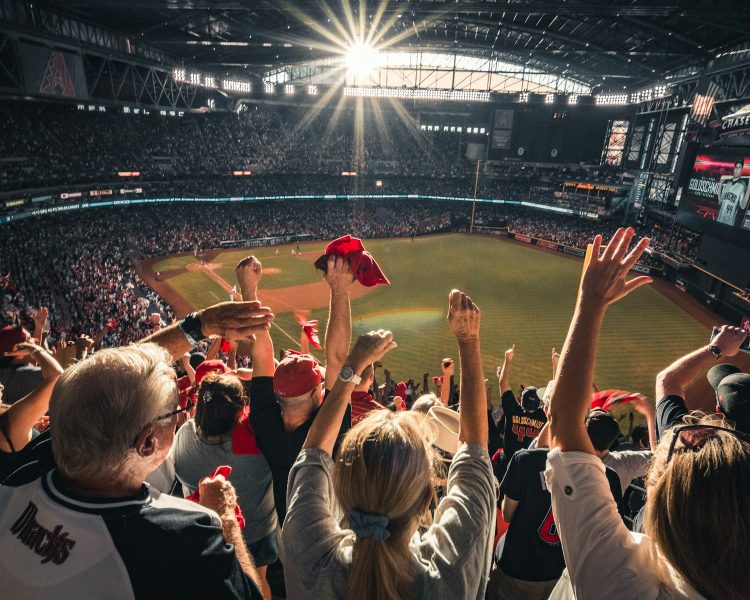Fan culture has long been synonymous with passion, excitement, and, of course, cheering for your team or favorite performer. It’s easy to think of fan culture as a one-dimensional act—people show up to events, scream and shout for their heroes, and then go home. But dig a little deeper, and you’ll quickly realize that fan culture is far more complex, encompassing a rich web of community, identity, emotion, and even social activism. It’s not just about cheering; it’s about being part of something bigger than yourself.
From sports stadiums to music concerts, and from gaming communities to film franchises, fan culture has evolved into a multifaceted phenomenon that plays a crucial role in shaping modern entertainment. In this essay, we’ll explore how fan culture has become a dynamic force that goes beyond simple enthusiasm, touching on aspects like identity, community-building, economic impact, and the power of social movements.
1. Fan Culture as a Community
At its core, fan culture is built on the idea of community. Fans are not isolated individuals; they come together to form groups—whether in person at a concert or sporting event, or virtually through social media platforms and fan forums. These communities create a sense of belonging, and they offer fans the chance to connect with others who share similar interests, values, and passions.
Take sports fans, for example. Whether you support a local team or a global franchise, your connection to other fans is one of camaraderie and solidarity. Fans often form lifelong friendships based on their shared love of the game or team. Through these bonds, fan culture allows individuals to experience not just the thrill of the event, but the joy of being part of a larger collective.
This communal aspect of fan culture is especially evident in social media, where fan groups thrive on platforms like Twitter, Reddit, or Facebook. Fans engage in discussions, share memes, and celebrate victories together, even if they live thousands of miles apart. The digital age has given fan culture a global reach, transcending geographical boundaries and making it easier than ever for fans to connect with one another.
2. Identity and Belonging in Fan Culture
One of the most powerful aspects of fan culture is its ability to shape personal identity. Being a fan isn’t just about following a sport or an entertainment franchise; it’s about embodying the values and ethos of that fandom. Whether you’re wearing a team jersey or a concert T-shirt, you’re not just representing the object of your fandom—you’re representing yourself.
For many fans, the choice of what to support becomes an integral part of who they are. A person who identifies as a “Marvel fan” might also identify with the values of heroism, resilience, and fighting for justice, all of which are core themes in the Marvel universe. Similarly, a sports fan might align with values of teamwork, competition, and loyalty. These connections go beyond mere entertainment—they reflect what fans believe in and how they want to be perceived by others.
Furthermore, fan culture creates subcultures where fans can find their place. For example, within the world of sports fandom, you may find groups of fans who pride themselves on being ultra-competitive and others who prefer the social and celebratory aspects of the game. In the realm of music, certain genres or artists inspire their own unique communities, where fans might dress a certain way or adopt specific behaviors associated with that culture. These subcultures offer fans the chance to carve out an identity that aligns with their personal values and interests.
3. The Economic Influence of Fan Culture
Fan culture also has a substantial economic impact. The demand for merchandise, tickets, and memorabilia is a testament to how fandom drives industries. From jerseys to posters, to limited-edition collectibles, fans spend billions of dollars annually on items that allow them to express their support and solidify their identity within the community.
Entertainment companies, sports franchises, and music artists all understand the economic power of their fan bases. This has led to the creation of highly targeted marketing campaigns and product lines specifically designed to cater to fans. Whether it’s exclusive content, VIP experiences, or premium merchandise, the more a brand or team can tap into the passion of its fanbase, the more lucrative it becomes.
Furthermore, fan culture also impacts the economy in less obvious ways. Consider the effect of large-scale sporting events, like the Super Bowl, the World Cup, or a major concert tour. These events not only generate ticket sales but also boost local economies through tourism, hospitality, and merchandising. Cities hosting these events often see a surge in business, with local restaurants, hotels, and transportation companies benefiting from the influx of fans.
In the digital realm, fan culture has spurred the growth of new industries, including online streaming, gaming, and e-sports. Platforms like Twitch, YouTube, and Spotify have become essential spaces for fans to engage with content and connect with creators. Content creators and influencers, in turn, rely on their fans for revenue, making them integral to the entertainment industry’s growth.
4. Emotional Connection and Fan Culture
While fan culture may have economic and identity-driven aspects, the emotional connection is what truly makes it unique. Fans invest not only their time and money into their chosen fandom, but also their hearts and minds. Whether it’s the joy of seeing your team win or the thrill of hearing your favorite artist perform live, the emotional highs and lows that fans experience are real and deeply felt.
For many people, their connection to a sports team or entertainment franchise becomes part of their emotional fabric. The bond that fans form with their team or idol is often comparable to that of a close relationship—through victories and defeats, fans remain committed. This connection creates a powerful sense of attachment, with fans celebrating success and coping with loss as if it were their own.
This emotional bond also leads to the phenomenon of “fan rituals.” Whether it’s wearing lucky socks during a big game, creating elaborate pre-show playlists, or performing chants and cheers, these rituals deepen the connection between the fan and their object of fandom. They serve as a way for fans to manifest their emotional investment and create lasting memories.
5. Fan Culture and Social Movements
In recent years, fan culture has become increasingly intertwined with social and political movements. Fans no longer passively consume entertainment—they actively engage with it. Whether it’s using a team’s platform to advocate for social justice or creating viral campaigns to raise awareness about environmental issues, fans are using their collective power for causes beyond entertainment.
A notable example of this is the Black Lives Matter movement, where sports teams, music artists, and fans alike have used their platforms to advocate for racial equality. Fans of teams like the NFL’s San Francisco 49ers or the NBA’s Milwaukee Bucks have led protests, organized marches, and made their voices heard. In this way, fan culture has shifted from mere entertainment consumption to active participation in societal change.
Moreover, fans are increasingly using their social media platforms to hold companies, teams, and celebrities accountable. Fans who feel strongly about issues—whether it’s political corruption, gender inequality, or environmental concerns—are vocalizing their opinions and demanding action from their idols. This activism within fan culture has elevated the idea of fandom from passive spectatorship to powerful social influence.
6. The Dark Side of Fan Culture: Toxicity and Extremism
While fan culture has many positive aspects, it also has a darker side. In some cases, fandom can spiral into obsession, exclusivity, and toxicity. Competitive sports, in particular, have seen instances of extreme fan behavior, including violence, harassment, and unsportsmanlike conduct. Fans of rival teams sometimes engage in hostile behavior, leading to dangerous confrontations.
Similarly, fan bases in the world of entertainment can sometimes become overzealous, to the point of harassment, particularly on social media. The pressure for celebrities to meet unrealistic expectations set by their fans can create an unhealthy dynamic.
However, these negative aspects of fan culture are the exception rather than the rule. In most cases, fan culture remains a source of joy, inspiration, and support. The key lies in creating inclusive, positive communities that welcome diverse voices and perspectives, rather than shutting people out.





